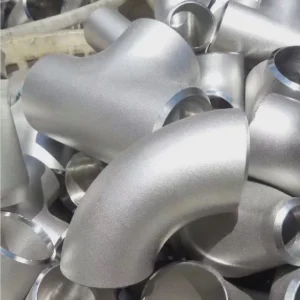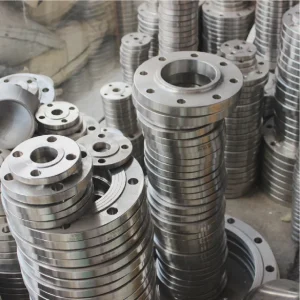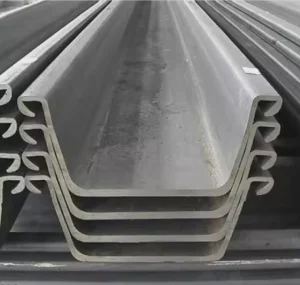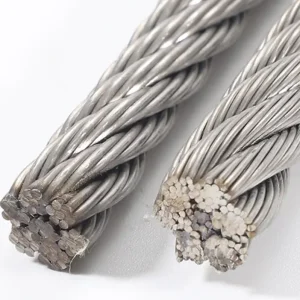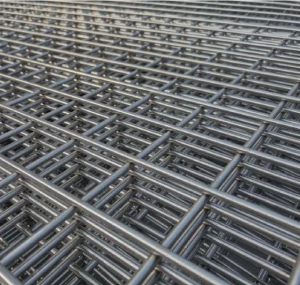In 2025 the market price for 2507 (UNS S32750 / “super-duplex”) plate remains significantly higher than common austenitic grades, typically ranging from ~US$2.8–6.0 per kg (≈US$2,800–6,000 per tonne) depending on thickness, surface finish, certification, and order volume; China factory-supplied stock sheets can appear at the lower end of that band while small-quantity, certified, or premium-surface plates in Europe or Japan sit at the high end.
1. What is 2507 Duplex Stainless Steel
2507 (commonly written “Super Duplex 2507” or UNS S32750) is a super-duplex stainless steel grade with roughly equal amounts of ferrite and austenite in the microstructure. The alloy combines high strength with very high resistance to chloride-induced pitting, crevice corrosion and stress corrosion cracking. This performance explains its use in severe offshore and chemical environments.
2. Chemical composition and cross-references
Typical bulk chemistry for 2507 includes high chromium, significant molybdenum and extra nitrogen plus modest nickel. Representative composition ranges:
-
Chromium: ~24–26%
-
Molybdenum: ~3–5%
-
Nickel: ~6–8%
-
Nitrogen: ~0.24–0.32%
-
Carbon: ≤0.03%
-
Balance iron with small allowances for Mn, Si, Cu, P, S.
Cross designations commonly used in procurement:
-
UNS S32750 (US/UNS)
-
EN 1.4410 / ISO names reference super-duplex chemistry.
3. Mechanical properties
2507 delivers higher yield and tensile strength than standard austenitic stainless steels — commonly 50% or more greater. Typical room-temperature properties (mill-annealed condition) are:
-
Yield strength (0.2%): ~450–550 MPa (varies by thickness and process)
-
Tensile strength: ~700–900 MPa
-
Elongation: modest but suitable for many forming operations.
High strength allows lighter, thinner components for the same load capacity, which sometimes offsets alloy cost in system-level designs.
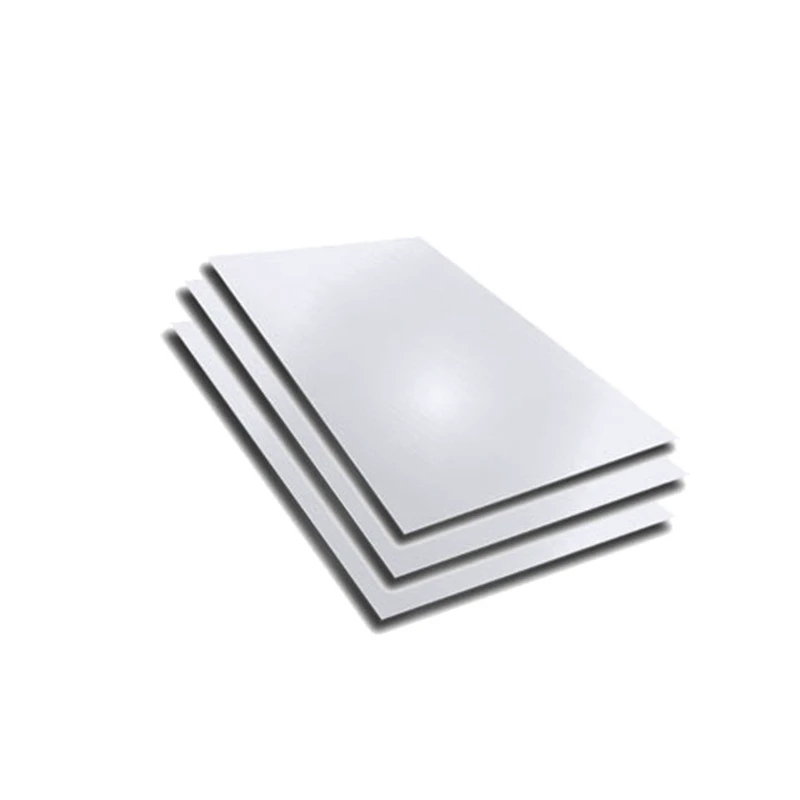
4. Corrosion resistance — where 2507 excels
Two performance points make 2507 attractive:
-
Pitting & crevice resistance: High Cr, Mo and N raise the pitting resistance equivalent number (PREN), making 2507 resistant in warm chloride environments.
-
Stress corrosion cracking (SCC): Duplex microstructure plus nitrogen reduces susceptibility to chloride SCC versus 304/316 and many austenitics.
Because of these features, 2507 is widely used for seawater, desalination, oil & gas, chemical processing and subsea hardware.
5. Fabrication, welding and forming
Practical notes from production experience:
-
Welding: 2507 can be welded with appropriate filler metals (matching duplex wires) and controlled heat input. Post-weld solution annealing is sometimes required in severe conditions. Qualification to relevant procedures and welder approvals is critical.
-
Forming: Cold forming is possible but springback and higher forces are expected relative to 316. Pre-weld cleanups, control of intermetallic precipitation and thermal cycles are important.
-
Heat limits: Not recommended for prolonged service above ≈300°C or below −50°C without qualification tests.
6. Standards and mill testing
Common specs and tests used in supply chains:
-
ASTM/ASME specifications (plates often supplied to ASTM A240/A276 family references where appropriate; check product spec).
-
EN and ISO designations appear in European supply.
-
Mill certificates: EN 10204 3.1/3.2 for critical projects. Suppliers should provide chemical analysis, mechanical test reports, and NDT where requested.
For high-risk projects (offshore, subsea) insist on full traceability and independent material reports.
7. Typical applications and sectors
Frequent uses of 2507 plate:
-
Offshore oil & gas: manifolds, piping, risers and structural components.
-
Chemical and petrochemical: heat exchangers, reactors and storage components handling chlorides or halides.
-
Desalination: seawater pumps, valves and pressure housings.
-
Subsea hardware and high-pressure piping where corrosion and strength demand super-duplex.
8. How prices are determined
Price behavior for 2507 follows a chain of inputs plus processing & certification premiums:
-
Raw material metals: Nickel, molybdenum, chromium and alloying nitrogen cost set a large portion of base melt price. Nickel and molybdenum volatility affect quotes quickly.
-
Energy and mill throughput: Hot rolling, solution annealing and controlled cooling add processing cost.
-
Thickness, dimensions and surface finish: Thinner, common sizes have lower per-kg prices; heavy plates or tight-tolerance finishes increase unit cost.
-
Certifications and test scope: EN/ASTM 3.1/3.2 certified batches, NDT, PMI, and third-party witnessing add to price.
-
Order size and logistics: Large lots and long-term contracts reduce unit price. Small buyers pay a premium.
-
Geopolitical/transport: Freight, tariffs and export constraints influence landed cost.
9. 2025 — Global price snapshot
Below is a representative market snapshot compiled from multiple live supplier price pages, trade platforms and specialist alloy distributors in mid-2025. Prices vary day-to-day; use these bands for budgeting and RFQ preparation. All figures in USD.
| Region / Market | Typical unit | Representative price band (USD) | Notes / sample sources |
|---|---|---|---|
| China (factory FOB) | per kg | $2.8 – $4.0 / kg | Lower bound for larger orders, common surface, limited mill certificates. |
| India (local distributor) | per kg | $3.0 – $5.0 / kg | Domestic markups and logistics. |
| Southeast Asia | per kg | $3.5 – $5.5 / kg | Small lots, import premiums. |
| Europe (mill + certified) | per tonne | $3,000 – $6,000 / tonne (~$3.0–$6.0/kg) | Higher testing and certification costs; branded mills. |
| North America (distributor, cut-to-size) | per kg | $3.5 – $6.0 / kg | Inventory & quick-ship premiums. |
| Small cut-orders worldwide | per kg | $4.5 – $9.0 / kg | Small qty and extra testing drive up unit price. |
Interpretation & budgeting tips: For large projects that specify EN/ASTM 3.1/3.2 certificates and PMI, budget toward the mid-to-upper band. If you can accept standard mill certificates and buy from Chinese mills in large lots, the lower band is realistic. Always confirm sample test data and TRACEABILITY.
Important: Different suppliers quote per kg, per sheet, or per tonne. Freight, import duty, and inspection costs typically add to the landed cost. Always request a full breakdown (material + processing + testing + shipping).
10. How to buy — procurement checklist
When you request quotes include these minimum items:
-
UNS / EN designation (e.g., UNS S32750 / EN 1.4410)
-
Thickness, width, length and surface (hot-rolled / 2B / pickled)
-
Mill test certificate (EN 10204 3.1 or 3.2 if required)
-
Heat number traceability and chemical analysis report
-
Welding filler spec if you require weld-matching consumables
-
Quantity & delivery Incoterm (FOB, CFR, CIF, DDP)
-
Inspection scope: PMI, UT, RT, PMI witness, 3rd party witness (BV, SGS)
Large EPCs should insist on witnessed heat treatment and independent lab tests.
11. Why choose Luokaiwei (our recommended supply model)
We present Luokaiwei as a competitive Chinese super-duplex plate source with the following advantages (typical for a factory supplier):
-
Factory pricing advantage: direct mill supply often reduces margin layers and yields more competitive FOB prices.
-
Customization: cut-to-size, edge finishing, CNC profiling and predefined welding prep are supported.
-
Stock & lead times: we maintain common thicknesses in stock for quick shipment; small lots can ship from inventory faster than custom orders.
-
Quality controls: full chemical and mechanical testing, PMI on request, and EN/ASTM certificate issuance available.
-
Export experience: packaging and logistics optimized for sea and air shipments with export documentation.
If your project requires certified lots, request a sample heat report with the RFQ and add third-party witnessing if contractually necessary.
12. Risk management and inspection recommendations
For high-value or safety-critical systems employ these checks before acceptance:
-
Material identity: PMI or laboratory spectro, matched to MTC.
-
Mechanical tests: tensile, yield and elongation per spec.
-
Corrosion testing: pitting/crevice tests for severe chloride exposure if required.
-
Microstructure: ferrite/austenite balance check and intermetallic precipitation inspection after welding trials.
-
Welding trials: full procedure qualification (PQR/WPQR) using intended filler metals and heat inputs.
FAQs
1) Is 2507 worth the premium compared with 2205 or 316?
Yes when the application exposes metal to high-temperature chlorides, seawater or where SCC risk and lifecycle cost dominate. Thinner sections and longer life can offset higher material cost. Use corrosion modelling or consult metallurgists for lifecycle costing.
2) What surface finish should I choose for plate in seawater service?
For seawater, pickled and passivated surfaces (e.g., bright or 2B with appropriate post-processing) reduce initiation sites for pitting. Specify surface finish in RFQ and request passivation records when required.
3) Can I weld 2507 to other stainless steels?
Dissimilar welding is possible with appropriate filler metals and procedure qualification, but beware of galvanic differences and sensitization. Where possible, use matching duplex filler and qualified WPS.
4) What minimum order size and lead time can I expect from Chinese mills?
Many Chinese mills accept 1–3 tonne orders from stock; custom melts or certified batches typically need 2–8 weeks depending on mill schedule. Large contracts can be negotiated with framework pricing. Ask suppliers for stock confirmation and lead time in writing.
5) How do I budget for total landed cost?
Start with per-kg quote, then add: cutting/processing, certificates and inspection, packaging, ocean freight (or air), import duty, and local handling. For firm projects add a 10–15% margin for metal price swings if procurement and delivery span several weeks.
Practical procurement example
If your engineering spec calls for UNS S32750, 6 mm, 2B finish, EN 10204 3.1, and you require 10 tonnes, approach two factory suppliers in China and one European mill. Compare: FOB unit price (China) + PMI + 3.1 certificate vs European mill price CIF. For large installations, run both technical and LCC comparisons rather than just material unit price.
Closing notes
We recommend requesting sample MTCs, a small test order or witness on one heat if project risk is high. Luokaiwei can provide factory pricing on stocked sizes, cut-to-length service, custom machining and export packing. Contact us for an itemized quote including testing scope and delivery terms.



